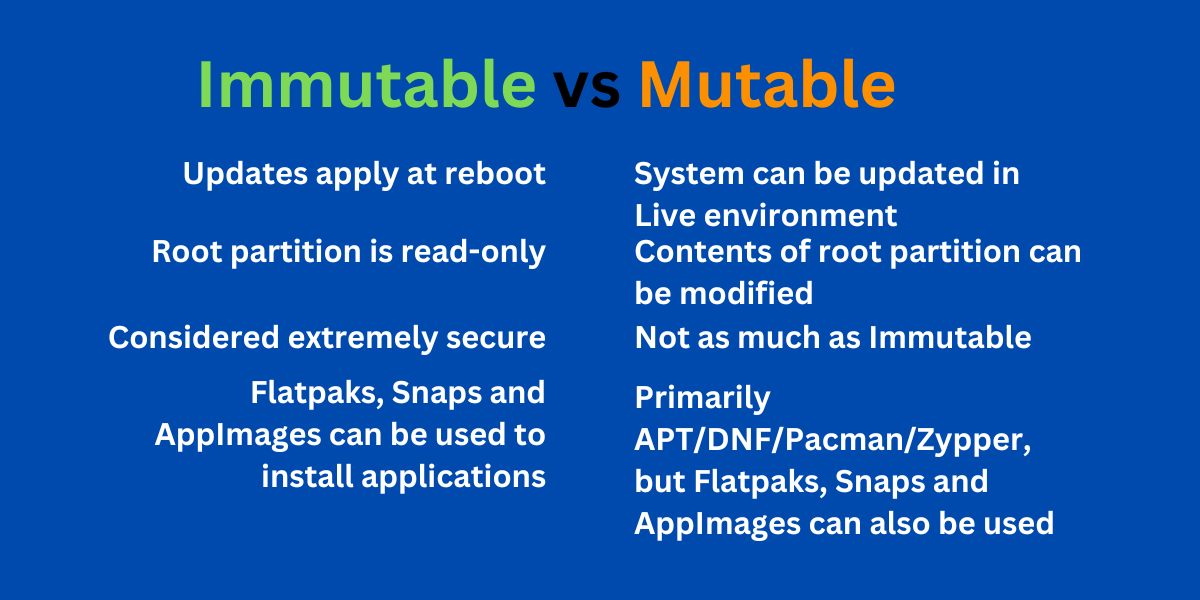this post was submitted on 13 Jan 2025
357 points (94.3% liked)
Linux
49017 readers
691 users here now
From Wikipedia, the free encyclopedia
Linux is a family of open source Unix-like operating systems based on the Linux kernel, an operating system kernel first released on September 17, 1991 by Linus Torvalds. Linux is typically packaged in a Linux distribution (or distro for short).
Distributions include the Linux kernel and supporting system software and libraries, many of which are provided by the GNU Project. Many Linux distributions use the word "Linux" in their name, but the Free Software Foundation uses the name GNU/Linux to emphasize the importance of GNU software, causing some controversy.
Rules
- Posts must be relevant to operating systems running the Linux kernel. GNU/Linux or otherwise.
- No misinformation
- No NSFW content
- No hate speech, bigotry, etc
Related Communities
Community icon by Alpár-Etele Méder, licensed under CC BY 3.0
founded 5 years ago
MODERATORS
you are viewing a single comment's thread
view the rest of the comments
view the rest of the comments

Correct about security. Unable to inspect the code running, unable to control your own device fully, and really secure at keeping the user out of their hardware.
And for apps shipped in containers? No need to be a part of the FLOSS community, because you can easily ship software to your users that provides no freedoms.
Those things have nothing to do with containerization. They can do those things without it. Containerization exists to improve privacy and security. It can do the same thing on Linux.
Even if you trust an app, it can have vulnerabilities you are unaware of. Containerization helps limit the effects damage from a vulnerability could have. They also simplify the distribution of software, which is the primary goal of Flatpak. There are benefits for using containers for open source software, you're just refusing to acknowledge them. Nobody is forcing you to use containerization, and I don't care to convince you to. I just think acting like Flatpak and other container based package formats is some corporate conspiracy is silly. Flatpak is FOSS and mainly distributes FOSS.